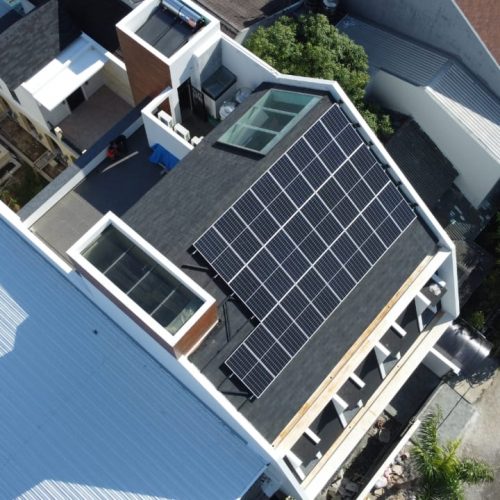The adoption of Solar panels for homes represents a significant shift in the way we think about energy consumption. More than just a modern trend, Solar panels are an investment that not only promises substantial savings but also contributes to a more sustainable and eco-friendly future.
The Power of Solar panels
Solar panels, also known as photovoltaic panels, are designed to capture sunlight and convert it into electricity. This process, known as the photovoltaic effect, involves the absorption of photons from the sun by the panels’ photovoltaic cells, leading to the generation of direct current (DC) electricity. An inverter then converts this DC electricity into the alternating current (AC) used to power homes.
Sustainability and the Environment
One of the key motivations behind the adoption of Solar panels is sustainability. Solar panels generate electricity without emitting harmful greenhouse gases, making them a vital player in the global effort to combat climate change and reduce carbon emissions. By choosing Solar panels, homeowners actively contribute to a cleaner and more sustainable planet.
Energy Independence
Solar panels (Solar panel) offer homeowners energy independence by enabling them to become not just consumers but also producers of electricity. This transition reduces reliance on traditional energy sources and the grid, providing a more reliable energy supply and giving homeowners control over their energy consumption.
Economic Benefits
Solar panels are not just about environmental responsibility; they also offer substantial economic benefits. Solar panel owners typically experience significant reductions in their energy bills as they generate a portion of their electricity from sunlight. Some homeowners even generate surplus electricity that can be sold back to the grid, further enhancing their savings.
Return on Investment
While the upfront cost of installing Solar panels may seem substantial, the return on investment is impressive. In many cases, homeowners can recoup the installation cost through reduced energy bills and government incentives within a few years. With a typical lifespan of 25 years or more, Solar panels ensure continued savings and a sound financial investment.
A Bright and Sustainable Future
Solar panels for homes are more than just a modern convenience; they are a significant step toward a sustainable energy future. As technology continues to advance, Solar panels are becoming more efficient, affordable, and accessible. This progress extends beyond residential use, with solar energy playing a significant role in powering businesses, communities, and vehicles.
In short, the adoption of Solar panels for homes is a wise decision that offers a sustainable and eco-friendly path to the future. By embracing Solar panels, homeowners reduce their environmental impact, gain energy independence, and enjoy significant long-term savings. Solar panels are not just about economic benefits; they represent an investment in a greener and more sustainable world for all.



